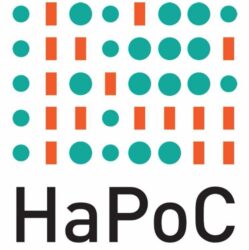The Turriano ICOHTEC Prize (formerly ICOHTEC Prize for Young Scholars) is sponsored by the Juanelo Turriano Foundation and consists of 2,500 Euro. The prize winning book will be presented and discussed at a special session of the next ICOHTEC symposium, in Rio de Janeiro, Brazil, from 23-29 July 2017 (http://www.icohtec.org/annual-meeting-2017.html [1]). An additional 500 Euro is available to the winner in support of travelling to the conference to receive the prize.
ICOHTEC, the International Committee for the History of Technology, is interested in the history of technology, focusing on technological development as well as its relationship to science, society, economy, culture and the environment. The history of technology covers all periods of human history and all populated areas. There is no limitation as to theoretical or methodological approaches.
Eligible for the prize are original book-length works in any of the official ICOHTEC languages (English, French, German, Russian or Spanish) in the history of technology: published or unpublished Ph.D. dissertations or other monographs written by scholars who, when applying for the prize, are not older than 37 years. Articles and edited anthologies are not eligible.
For the 2017 Turriano ICOHTEC Prize (http://www.icohtec.org/resources-prizes-turriano-icohtec.html [2]) please send an electronic copy (Pdf or Word) of the work you wish to be considered for the prize to each of the three Prize Committee members. (Note: Hard copies are only accepted for published works not available electronically.) YOUR SUBMISSIONS MUST BE EMAILED NO LATER THAN FRIDAY, 3 FEBRUARY 2017. If your book is in Spanish or Russian, please also supply a summary in English, French or German of about 4,500 words. In that case, the prize committee will find additional members, who are familiar with the language in which your book is written. Please also include an abstract of no more than a half-page in length.
If the work is a Ph.D. thesis, it should have been accepted by your university in 2015 or 2016; if it is a published work, the year of publication should be 2015 or 2016. The submission should be accompanied by a CV (indicating also the date of birth) and, if applicable, a list of publications. Applicants are free to add references or reviews on the work submitted.
Any materials sent to the prize committee will not be returned.
Send a complete application by email to each of the following Prize Committee members:
Dr. Jeremy Kinney, Prize Committee Chair
Curator, Aeronautics Department Smithsonian National Air and Space Museum P.O. 37012, MRC 312 Washington, DC 20013-7012 USA E-mail: kinneyj@si.edu
Dr. Yoel Bergman Associate Researcher Cohen Institute, Tel-Aviv University 20 Hatzmaut st. Herzliya 46789 Israel E-mail: yoelb@protalix.com, bergm@post.tau.ac.il
Dr. Irina Gouzevitch Centre Maurice Halbwachs École Normale Supérieure 48, boulevard Jourdan 75014 PARIS E-mail: igouzevitch@ens.fr
Dr. Klaus Staubermann Principal Curator of Technology National Museums of Scotland Chambers Street Edinburgh EH1 1JF UK E-mail: K.Staubermann@nms.ac.uk
